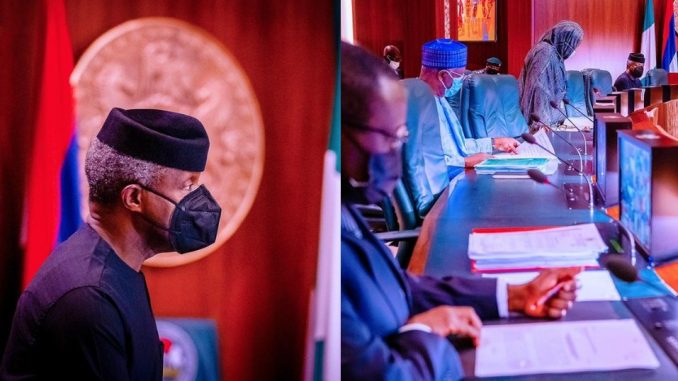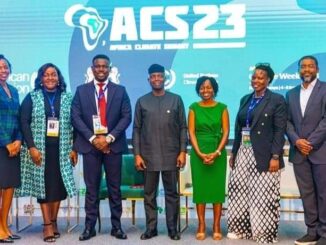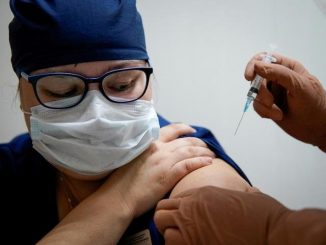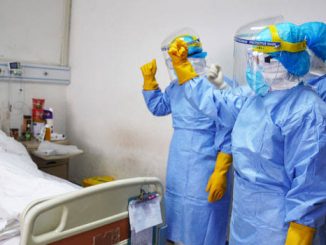
By Oluwafemi Popoola
Vice President Yemi Osinbajo has decried the uneven distribution of vaccine across countries while calling on world leaders to embrace the principle of fairness in addressing the challenges in health, the economy and other issues.
He expressed concern that the current trends in global distribution may lead to vaccine nationalism, which may be counter productive in the fight against the deadly coronavirus.
Osinbajo’s spokesman, Laolu Akande, in a statement on Wednesday in Abuja, said that the vice president spoke at a virtual forum organised by a leading American Christian University, Liberty University.
The forum with the theme “Equity for Africa: Transforming the World through Judeo-Christian Values,” was hosted by the university’s School of Business.
According to the Vice President, “the principle of fairness obliges us as people of faith, to strive to build a fairer world, a world which takes account of the interests of the poor and marginalised. It means a world that does not impose unfair burdens on developing countries when global cooperation is required. For example, if you look at what is happening with COVID-19 and access to vaccines, what we are seeing is export bans and a resort to vaccine nationalism.”
The Vice President said “Christian leaders must lead the world towards ensuring that all countries and their peoples can access vaccines irrespective of the resources available to them. The same considerations apply to helping African countries cope with the economic crisis caused by COVID-19.”
ALSO READ: Osinbajo’s brilliance, nationalism encouraging, says US clergy, Rev. Johnnie Moore
He restated his earlier call on some multilateral agencies planning to de-fund gas projects to review their position noting that “it is worrisome and should be dropped and we would call on people of conscience and faith to put a stop to this trend that can undermine the sense of collective responsibility we all have towards mitigating climate change.”
His words: “One issue that is emerging as a major concern in terms of equity and fairness is the process of reaching a just transition towards a low-carbon economy. Africa including Nigeria has abundant gas resources and gas is cleaner by far than crude oil and it derivatives.
“Gas has an important contribution to make in our economies in terms of transportation and even in terms of cooking to replace coal and kerosene.”
Speaking about the prospects for greater advancement in Africa, Prof. Osinbajo noted that “there is no gainsaying that in order for Africa to actualize its potential, it must work with friends especially those of faith to identify strategic opportunities to bring about growth and prosperity in the continent.”
Referring specifically to investment potentials in Nigeria, the Vice President said “investing in Nigeria also offers a pathway to partaking in the African Continental Free Trade Area (AfCFTA) which will create a market in goods and services for up to 1.3 billion people.”
Continuing he said “it is also a pathway to using the provisions of the African Growth and Opportunity Act to produce goods that can then be exported into the United States under preferential terms.
“The opportunities are vast and it is not surprising that Nigerian business leaders who know the country well and appreciate its economic dynamics are making big investments in oil and gas, in agriculture and food processing, in telecommunications, in power generation, in technology and in the hospitality and creative sectors.”
• Contributed by Wepush Media




